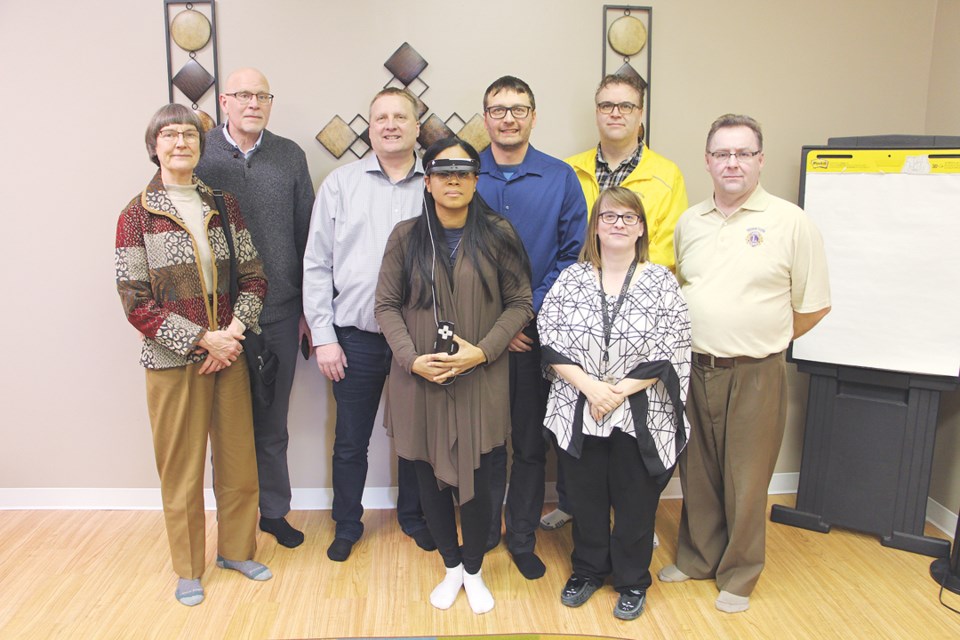A Yorkton woman can see again thanks to the efforts of different community organizations.
Claritza Volquez has Stargardt disease, a genetic degenerative eye disease. She was born with it, as was one of her brothers, though since the gene is recessive she has not passed the disease down to her children. In her case, the cones in her eye are affected, which makes it difficult for her to see in well-lit environments, though her rods are relatively unaffected.
“My family is very numerous, so when we found out, we investigated, and nobody has it. They don’t really understand why my brother and I have it... My grandma is 98 and she can still see. I don’t really understand why, but I’ve been learning that you don’t need to say why, you need to say okay and move forward.”
Volquez works at the Family Resource Centre, and Kim Gelowitz with the FRC said that she noticed just how much memorization Volquez had to do in order to keep up their programming. She kept up so well that many families did not know she was legally blind.
“I did my job and I had to memorize everything, because I couldn’t see too much, or as good as the others,” said Volquez.
“Here, things are moving and changing all the time, so she had to adapt,” Gelowitz added.
Gelowitz researched to see what could be done to help her. She found out about eSight glasses. Looking surprisingly similar to the VISOR from Star Trek: The Next Generation, the glasses use cameras to capture high-resolution video to display directly in front of the user. The footage is also enhanced for the user with software to work with their visual impairment, explains the eSight website. After a while, the glasses became available in Canada, but they were expensive – initially over $12,000, though the price has come down since – so it was beyond Volquez’s budget. They approached different groups to see if they were interested in sponsoring a set of the glasses for Volquez.
Between GoFundMe, Victory Church, the Yorkton Alliance Church and the Lion’s Club all got on board to help her raise money for the glasses. With the glasses going on sale in December, they had enough money to buy the glasses. The churches donated meals, with the Victory Church hosting a supper, and the Alliance Church auctioning off suppers with their members.
Denny Vachon said that the Lions have long been involved with the CNIB and helping the blind. Helping Volquez was something that fit with what the Lions do in the community, so they were happy to help assist her to get the glasses, along with the churches.
“It really does take a community to help a family,” said Gelowitz.
The glasses mean that Volquez can now do things other people take for granted, such as reading. She explained that without her glasses, someone sitting even relatively near was very blurry, but with the glasses on she could see them again. She also notes that she normally cannot see things very far away.
That was one of the first things she lost with the condition. She is now training to get the most out of the new glasses.
“I think that the glasses are a very good tool, an excellent technology for people who have central vision loss.”
Volquez did not expect to get help to restore her vision.
“I love helping people, but I didn’t know that there would be people to help me! That’s incredible, I like to help others a lot, I like to volunteer and be involved, but I wasn’t expecting people to help me.”
There is currently research going on into the disease, and Volquez hopes that she will be able to join the studies eventually if the results remain positive.




